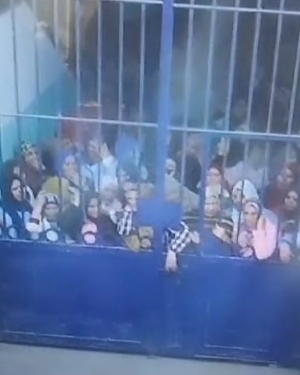The 3,700 female workers in the Mahalla textile factories were furious. The Egyptian president, Abdel Fattah El-Sisi, had earlier in the month raised the minimum wage to 6,000 Egyptian pounds — the equivalent of just £100. That’s £100 per month. But workers in the state-owned companies, including Mahalla, were exempted from the pay increase.
The decision by the El-Sisi government to raise wages was due to the increasingly severe cost-of-living crisis in the country. In January 2024, the government raised prices of electricity, metro tickets and telecommunications services in an attempt to get a grip on a growing budget deficit. Their efforts were praised, as one would expect, by the International Monetary Fund.
The women at Mahalla decided to go on strike. Their initial demand was to be given the same pay as every other worker in the country.
They took their protest to a Ramadan Expo which was attended by the regional governor, Dr. Tarek Rahmi. They shouted slogans at him, forcing him to flee the area. Workers were later prevented from leaving the factory, locked behind the gates. When news of this got out, workers from other factories joined the women on strike. The strike was spreading.
Aș peaceful protests continued, both Mahalla’s management and the Egyptian government refused to negotiate. Eventually, the Minister in charge of the public sector companies agreed to raise the minimum wage to that just granted to the private sector workers, but by then the workers’ demands had grown. They wanted, among other things, a meal allowance equal to £15.
Nevertheless, the strike ended on 29 February — but then the dispute turned nasty. Thirteen workers were arrested by the security services, two of whom remain in custody — Wael Mohamed Mahmoud Abu Zoueid and Mohamed Mahmoud Tolba Hussein.
And incredibly some of those workers were threatened with dismissal for being absent from work — at a time when they were in police custody!
The Center for Trade Unions and Workers Services (CTUWS), which has been campaigning in support of Egypt’s independent trade unions since its founding in 1990, has launched a campaign on LabourStart. The campaign calls on the company’s management to release the two workers still in custody, stop further arrests and false charges against workers. The CTUWS points out that the actions of the company and the government are in breach of the International Labour Organisation’s conventions, to which Egypt is a signatory.
The campaign can be found here — https://bit.ly/ctuws— and deserves wide support in the British and international labour movements.
This article appears in the current issue of Solidarity.
